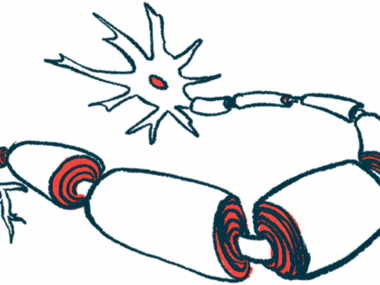Does Medical Marijuana Help the Pain That Comes With MS?
Written by |

Will your doctor approve you to buy medical marijuana (MMJ)? Two of mine will and one won’t.
The doctor who won’t, a primary care physician who works within a medical group, told me it’s the group’s policy. The problem, she explained, is that there are no guidelines. How do you know what to prescribe if you can’t determine the marijuana’s potency or understand how the balance between THC and CBD — the parts of marijuana that get you high and that calm you down, respectively — will affect a specific symptom? There are also no quality controls, as there are with traditional medications.
Is it enough to know it helps ease pain?
Though I’ve tried MMJ a couple of times, I’ve also been concerned by the lack of standards. So an article and accompanying editorial just published in the journal Annals of Internal Medicine caught my attention. Researchers from Oregon Heath & Science University reviewed 25 trials and studies, involving nearly 15,000 people, and found that using cannabis products with a high THC-to-CBD ratio resulted in moderate, short-term improvements in chronic pain.
However, these products were also associated with higher risks for adverse events, such as sedation and dizziness, and they produced few benefits in overall functioning.
MMJ and MS pain
Although some neurologists will disagree, there’s no doubt in my mind that multiple sclerosis (MS) can cause pain. There can be the facial pain, known as trigeminal neuralgia; burning pain in the legs from damaged nerves; and neck and back pain from muscles that are stressed by the abnormal gait associated with MS. A significant number of people with MS report pain early in their MS journey, and you can read patient reports of pain in nearly any MS-related Facebook group.
There are also studies that show that using cannabis specifically helps ease MS pain. If MMJ is reducing pain, shouldn’t doctors consider it as a treatment option?
Balancing medical standards and medical marijuana use
An email summary of an editorial in Annals of Internal Medicine, accompanying the Oregon study and written by two doctors at the University of Michigan Medical School’s anesthesiology department, suggests that clinicians should be “willing to provide compassionate guidance” to patients who want to use cannabis products to treat their symptoms.
To do that, they say a healthcare professional needs to know the patient well and know the effects cannabinoids can have. This includes understanding how to balance THC and CBD, understanding cannabis potency, and knowing the potential adverse effects that cannabis can have.
That seems pretty simple to me. What do you think?
You’re invited to visit my personal blog at www.themswire.com.
Note: Multiple Sclerosis News Today is strictly a news and information website about the disease. It does not provide medical advice, diagnosis, or treatment. This content is not intended to be a substitute for professional medical advice, diagnosis, or treatment. Always seek the advice of your physician or other qualified health provider with any questions you may have regarding a medical condition. Never disregard professional medical advice or delay in seeking it because of something you have read on this website. The opinions expressed in this column are not those of Multiple Sclerosis News Today or its parent company, Bionews, and are intended to spark discussion about issues pertaining to multiple sclerosis.




iris prusky
my son 50 years old got the MS since last year. since, he got pain relief pills for MS, called Lyrica 4 pills per day but they dont help at all. yet whenever he gets cannabis he feels better, pains seem to be mild and he becomes relaxed. but unfortunately the neurologist in the hospital refused to approve him the medical canabis because my son being a music producer used canabis in his past and now they say it is dangerous for him (although he got the MS) being that he MIGHT get a psychotic attack.... so stupid. he didnt get any using the canabis in small quantities. what can be done about it??? thanx Iris prusky
Ed Tobias
Hi Iris,
I'm afraid I don't have a good answer for your question. The only thing I can suggest is that he get a second opinion from another neurologist.
Ed
Leanne Broughton
I have tried CBD for trigeminal neuralgia and it did not work. Maybe the pain was too severe. I wanted to get away from the sedating effects of prescriptions . There is no quality of life if your stoned and falling down. I did not want to use THC for similar reasons. I had occasionally used pot/dope/weed as a teenager and did not want to go there. I have enough cog fog without decreasing my brain function. Smoking it is also out as I have had close relatives die from lung cancer (heavy smokers) and COPD.
Ed Tobias
Good thoughts, Leanne. Thanks for sharing.
Ed
Caroline Borduin
I live in Oregon where marijuana is legal (my neurologist is at OHSU.) So I don't need a prescription to test out pot. I tried a standard dose of 10% THC during a period of active trigeminal neuralgia a few years ago and it had no impact on the pain, which is extreme. Even upping the THC or the dosage didn't help, but it resulted in unacceptable (to me) brain fuzziness.
I have also tried MMJ as a relaxant - trying to make my legs feel more responsive and less rigid. But to get that effect, which I achieved, I had to up the THC too much. I'm not sure it really counted as a medical intervention at that point!
Ed Tobias
Hi Caroline,
Thanks for sharing that info. That's the thing, MMJ and recreational marijuana both seem unpredictable to me. It's hard to get a handle on what's enough and what's too much. But I do think standards can, and should, be developed.
Ed
L
If you have nothing required of you then MJ is great for chronic MS pain. Otherwise, you cant drive, work, problem solve, etc... Especially, if it is strong. Also, MJ can effect your central nervous system and it is not unheard of to OD. I understand from experience why doctors are hesitant to recommend since dosing and strength cannot be measured. My pain management doctor has suggested usage but I prefer the more predictable pain medicine.
Ed Tobias
Hi L,
Lack of predictability is my primary problem with MMJ and, based on my limited experience, it would be a bedtime only event if I were to use it regularly. I wrote something last year about the OD possibility. http://multiplesclerosisnewstoday.com/columns/2021/07/13/using-cannabis-treat-ms-word-caution-medical-marijuana/
Ed
Paula
Hi Ed, thanks for another good one. I’ve tried weed one of my kids got me as well as medical with a card which I went to dispensary to purchase. Both had the same effect. I liken it to a glass of wine or a beer. Yes, of course it helps. For a short time. I’ve also been afflicted with stasis ulcers that are severe. Nurses every 3 days for dressing changes. This in combination with the awful spasticity make me want opioids. Never tried them but nurses tell me it’s time. I’ll continue with my 2-3 hits each day after dinner for a while longer then smoke some more as my pain increases. Wth it improves my disposition.lol. Thanks Ed!
Ed Tobias
Hi Paula,
Thanks for your comments. I'm sorry that you're having so much of a problem with pain but it sounds as if your nurses understand and are trying to help. As for the weed, I'm all in favor improving dispositions.
Ed
Mrs Sandra Bromfield
I’m taking the Sativex spray 6 sprays a day. It helps with pain when going to bed and I think with spasms I can’t go without it.
Ed Tobias
Hi Sandra,
Thanks for that info. I think Sativex would help me, as well.
Ed
Peter Birkinshaw
never had the medical but start smoking weed/skunk about 15 years ago, only needed 3 puffs on a small roll-up size cig and the pain relief was amazing, i've got m/s and suffered with mind numbing nerve pain every waking moment, proper hell and specialists tried to get savatex for me but Manchester health authority weren't having it that it had any benefits with pain, even had arguments with them that it does but no they knew best, i said i don't want to smoke weed and never had relief like it but still didn't agree so just smoked it at night before bed, brilliant stuff and stopped me wanting to end my life. 15 years later i have 3 small roll-ups and still works amazing, they basically forced me to have illegal weed. i wouldn't swop it for anything else because the spray wouldn't give me the relief like strong skunk does. I tell all the people i need to even police who ive had involvement with, stinks so i walk dogs at 11pm and sleep like a log. Dont mind being a tad stoned, enjoy the feeling lol
Ed Tobias
Thanks for sharing all of that, Peter.
I'm interested in Sativex myself. I think it would help with my spasticity. One of the readers of my column, by the way, has been involved in a Sativex trial in Belgium and he reports mixed results.
Ed
REBECCA
Don't go to your neurologist. You can find a medical marijuana doctor online who will be able to write you the prescription. Imo neurologists are useless except if you want to take the DMT, for anything else use a GP I have found LDN, low dose naltrexone to be helpful. Again, go on line and download the research on LDN and MS and take it to your GP or call Skip's pharmacy in FLA or Metro pharmacy in NYC, both compounding pharmacies for LDN and ask them to recommend a dr who will prescribe it. He might also want to try CBD oil full spectrum, which doesn't need a prescription. I found the medical marijuana tinctures too strong for me even at 1:1 and like the CBD oil much better He can call Lazarus, which is a CBD supplier, and ask what would be good for him. He can start on 750 full specturm two times a day. Forget the neurologist for anything but hardcore MS drugs. A functional medical doctor is much better for trying non-traditional medical alternatives. Neurologists know nothing about marijuana or anything really that's not pharmaceutical.